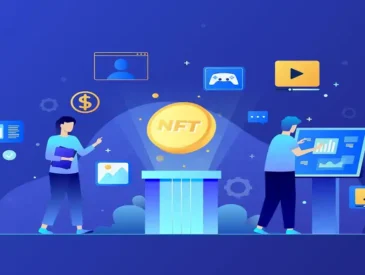Since its inception in the mid-1990s, Yahoo has been a prominent player in the digital landscape. This article delves into Yahoo’s history, its evolution, impact on the internet, and current status in a rapidly changing technological world. Spanning over 1500 words, we will explore how Yahoo began, its rise to prominence, subsequent challenges, and future prospects.
The Birth of Yahoo
Yahoo was founded in January 1994 by Jerry Yang and David Filo, electrical engineering graduate students at Stanford University. Initially created as a directory of other websites, “Jerry and David’s Guide to the World Wide Web,” it was soon renamed “Yahoo!,” an acronym for “Yet Another Hierarchically Organized Oracle.” The name reflects the founders’ mission to help users navigate the burgeoning web with ease.
In March 1995, Yahoo was incorporated, and by April 1996, it went public, raising $33.8 million. The successful IPO marked the beginning of Yahoo’s rapid ascent in the internet world.
Yahoo’s Rise to Prominence
During the late 1990s and early 2000s, Yahoo established itself as a comprehensive internet portal offering a range of services, including:
- Search Engine: Yahoo’s search engine was one of the earliest and most popular, helping users find information quickly.
- Email Services: Yahoo Mail became one of the most widely used email services, offering free email accounts with substantial storage.
- News and Media: Yahoo News provided up-to-date news from various sources, becoming a trusted news aggregator.
- Finance: Yahoo Finance emerged as a leading platform for financial news, stock quotes, and investment information.
- Entertainment and Lifestyle: Yahoo also ventured into entertainment with Yahoo Movies, Yahoo Music, and Yahoo Sports, catering to diverse user interests.
By integrating these services, Yahoo created a one-stop portal for internet users, significantly boosting its user base and advertising revenue. By the early 2000s, Yahoo was among the most visited websites globally, with millions of users relying on its services daily.
Challenges and Competition
Despite its early success, Yahoo faced significant challenges as the internet landscape evolved. The rise of Google in the early 2000s posed a formidable threat. Google’s superior search algorithms and minimalist interface quickly attracted users, overshadowing Yahoo’s search capabilities.
Additionally, Yahoo’s attempts to diversify its offerings through acquisitions often failed to yield the desired results. Notable missteps included the acquisitions of GeoCities (1999) and Tumblr (2013), which did not generate the expected returns. These strategic errors, coupled with internal management issues, contributed to Yahoo’s declining market position.
Yahoo’s Attempted Revival and Sale to Verizon
In the late 2000s and early 2010s, Yahoo made several attempts to revitalize its brand and regain market share. Under the leadership of CEOs like Marissa Mayer, who joined from Google in 2012, Yahoo focused on improving its core products and investing in new technologies. Mayer’s tenure saw efforts to enhance Yahoo Mail, revamp its homepage, and launch mobile apps to appeal to a growing mobile audience.
However, these efforts were not enough to reverse the company’s fortunes. Persistent financial struggles and an inability to compete effectively with tech giants like Google and Facebook led Yahoo to explore strategic alternatives. In 2016, Yahoo’s core internet operations were sold to Verizon Communications for $4.48 billion. The acquisition marked the end of an era for Yahoo as an independent internet giant.
Yahoo’s Legacy and Current State
Despite its decline, Yahoo’s legacy in the internet world is significant. It was one of the pioneers that shaped the early web, setting standards for online portals and integrated services. Yahoo’s influence extended to various domains, from search and email to news and entertainment.
Today, Yahoo operates as a part of Verizon Media (formerly Oath Inc.), which also includes brands like AOL, TechCrunch, and HuffPost. Under Verizon’s ownership, Yahoo continues to offer its core services, including Yahoo Mail, Yahoo News, Yahoo Finance, and Yahoo Sports. While it no longer holds the dominant position it once did, Yahoo remains a recognizable brand with a dedicated user base.
Yahoo’s Impact on Internet Culture
Yahoo’s impact on internet culture and user behavior is profound. It introduced many users to the internet and played a crucial role in the development of online communities. Yahoo Groups, launched in 2001, provided a platform for users to create and join interest-based groups, fostering online discussions and communities long before the rise of social media.
Yahoo Answers, another popular service, allowed users to ask and answer questions on various topics, creating a vast repository of user-generated knowledge. Although Yahoo Answers was shut down in 2021, its influence on online Q&A platforms like Quora is undeniable.
The Evolution of Yahoo’s Services
- Yahoo Mail: Despite fierce competition from Gmail and other email providers, Yahoo Mail remains one of the most popular email services. It continues to innovate with features like disposable email addresses, customization options, and advanced spam protection.
- Yahoo Finance: Yahoo Finance remains a go-to resource for financial news and data. Its comprehensive stock market information, financial news coverage, and tools for investors make it a valuable asset for users worldwide.
- Yahoo Sports: Yahoo Sports has maintained its relevance by offering real-time sports news, scores, and fantasy sports leagues. It continues to attract sports enthusiasts with its in-depth coverage and user-friendly interface.
- Yahoo News: Yahoo News aggregates content from various sources, providing users with a broad spectrum of news coverage. Its partnership with major news organizations ensures that users have access to reliable and diverse news content.
The Future of Yahoo
As part of Verizon Media, Yahoo’s future hinges on its ability to adapt to changing digital trends and user preferences. The following strategies could shape Yahoo’s path forward:
- Mobile Optimization: With the increasing shift towards mobile internet usage, optimizing Yahoo’s services for mobile devices is crucial. Enhancing mobile apps and ensuring a seamless mobile user experience can help retain and attract users.
- Content Personalization: Leveraging data analytics and artificial intelligence to personalize content for users can enhance engagement. By delivering relevant news, financial updates, and sports information, Yahoo can keep users coming back.
- Expanding Digital Advertising: Strengthening its digital advertising capabilities can boost revenue. Targeted advertising and partnerships with brands can help Yahoo monetize its user base effectively.
- Innovating in Emerging Technologies: Embracing emerging technologies like artificial intelligence, machine learning, and blockchain can provide Yahoo with new growth opportunities. These technologies can enhance user experiences and open up new avenues for innovation.
Conclusion
Yahoo’s journey from a Stanford project to a digital pioneer is a testament to its enduring impact on the internet. While it has faced numerous challenges and transformations, Yahoo’s legacy as a trailblazer in the digital world remains intact. As it continues to evolve under Verizon Media, Yahoo’s ability to adapt and innovate will determine its place in the future internet landscape.
With a rich history and a dedicated user base, Yahoo’s story is far from over. Its ongoing efforts to provide valuable services and stay relevant in a dynamic digital world reflect its commitment to remaining a significant player in the internet age. Whether through mobile optimization, content personalization, or embracing new technologies, Yahoo’s evolution will be closely watched by users and industry observers alike. See more




